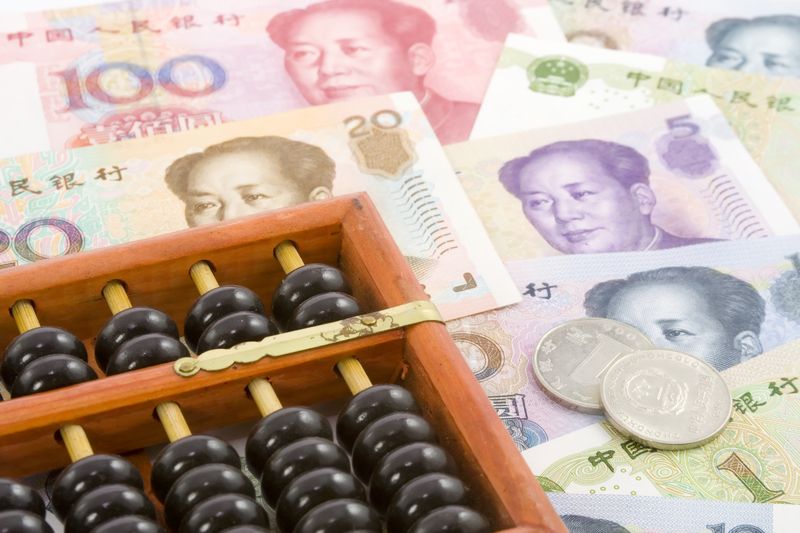Central Asian issuers eye renminbi

A pipeline of renminbi bond deals from Central Asia is building as issuers look to take advantage of favourable rates and the region's growing relationship with China.
According to sources, “four to five” issuers from the region are considering renminbi transactions. These include the Kyrgyz Republic, which in a December presentation said it was looking to raise up to Rmb5bn (US$695m) from bonds with a maximum tenor of five years. A person familiar with the transaction said it is still considering a renminbi issue after pricing US dollar bonds in May.
Earlier this month, KazMunayGas CEO Askhat Khassenov told media that the Kazakh state-owned oil company was exploring both Panda and Dim Sum bonds to access cheaper funding.
A person familiar with KMG said the issuer is in talks with TF International, Bank of China and China Citic Bank International on the transaction and may also involve international banks.
The person said KMG is considering a tenor of three or more years. “The issuer is quite cost-conscious,” the person said, adding that it is also preparing anchor investors for the deal, and saying: “Anchor investors are very important in the whole story."
KMG is rated Baa1/BB+/BBB, lower than the usual issuers in China's onshore interbank or offshore Dim Sum market.
A spokesperson for KMG declined to give details as the deal has not been publicly announced.
Arman Batayev, managing director of OD Consulting, which advises companies seeking to register with Kazakhstan's Astana International Financial Centre, said firms are looking at borrowing channels abroad in light of the domestic key interest rate of 16.5% – compared with 2.5% in China.
AIFC in May held a roadshow in Hong Kong and a conference co-organised with the Hong Kong Trade Development Council.
“Given ongoing trade tensions and sanctions, investors from China are increasingly exploring opportunities in Central Asia,” Batayev said.
“Since the onset of the [Russia-Ukraine] war, we’ve seen a noticeable shift of certain production lines to Kazakhstan, creating a pipeline of investable projects. By contrast, despite favourable monetary conditions in China, investors sometimes face a shortage of comparable domestic opportunities,” he said.
China is a major importer of Kazakh minerals and agricultural commodities. According to customs data cited by state news agency Xinhua, China's trade with the region grew by 116% to Rmb674.15bn from 2023 to 2024 and is up 10.4% year on year for the first five months of 2025 at a record Rmb286.42bn.
“It’s strategically sound for Kazakh companies to raise capital in renminbi, especially when a significant portion of their exports are directed toward the Chinese market,” said Batayev.
However, issuers must receive approval from the People's Bank of China and the China Securities Regulatory Commission, which can be a long process, and there are controls on repatriating funds outside China.
Tighter relationship
“This is where the Belt and Road policy comes into play,” said the debt syndicate head at a Hong Kong-headquartered bank. Chinese president Xi Jinping first announced the Belt and Road Initiative in Astana in 2013, and transport corridors between Kazakhstan and Europe remain pillars of the BRI.
Xi arrived in Astana on Monday to meet heads of state from Kazakhstan, Kyrgyzstan, Uzbekistan, Tajikistan and Turkmenistan, and on Tuesday signed a treaty to deepen cooperation with the five post-Soviet nations.
Kazakhstan’s finance ministry on Wednesday said it would look to raise US$2.5bn of Eurobonds, without giving further details.
“To do an onshore Panda deal, you need government support to remit the use of proceeds offshore … These countries do have a relationship with China so it’s natural they would be looking at this market,” the debt syndicate head said, adding that the Chinese market has been growing deeper and could now support benchmark sized transactions.
From the perspective of domestic Chinese funds, these lower-rated sovereigns provide a “very significant” yield pick-up versus investing in domestic Chinese companies, said the head of the debt syndicate.
The syndicate head said the “chaos and instability” brought to capital markets by US president Donald Trump’s policies “also come into play” in the globalisation of the Chinese currency.
Tapping domestic liquidity
As the market develops, it is possible there will be more innovative types of renminbi fundraising for companies from Kazakhstan, observers noted.
In May, Nasdaq-listed brokerage firm Freedom Holding priced a Rmb219m 8% two-year bond issue that was listed solely on the Astana stock exchange.
“Many Kazakhstani companies are accumulating renminbi in their treasury accounts due to export flows. Freedom introduced a useful financial instrument that allows them to generate returns on their renminbi holdings,” Batayev said.
The decision to list on the Astana International Exchange was likely to have been driven both by the complexity around onshore Panda bonds and the opportunity to structure a more flexible and innovative product locally, he said.
In December last year, Kyrgyz renewable power player PlanDem issued Rmb370m of debut green bonds via AIX.
In 2020, the Astana branch of China Construction Bank became the first issuer to price what it called “Falcon bonds”, or renminbi bonds listed on AIX and in Hong Kong.
The China head of an international investment bank said issuers may opt to list bonds domestically to target investors that only have a local set-up, or to signal they are looking to target those investors even if they can access those bonds through Euroclear.
“Given the growing renminbi reserves held by exporters and Chinese investors who own companies in Kazakhstan, I believe we will see more Kazakhstani companies explore similar instruments [to Freedom] via AIX,” said Batayev.





